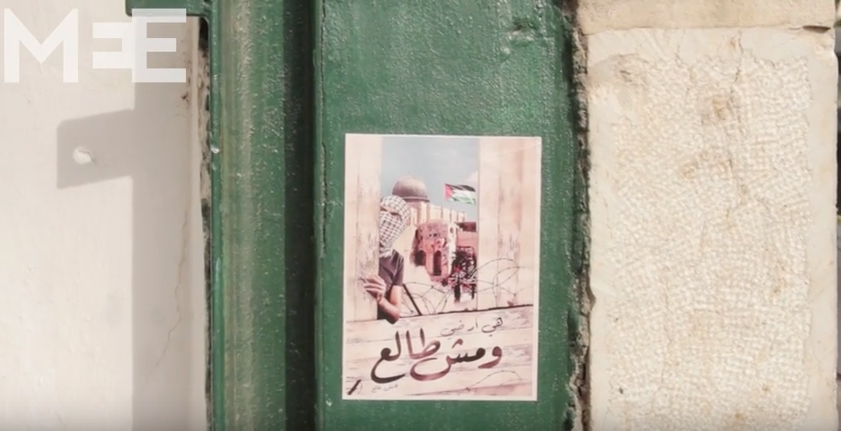Israel arrests Palestinians seeking refuge inside Red Cross offices

Two Palestinian men have been arrested at the offices of the International Committee for the Red Cross (ICRC) in Jerusalem after defying an Israeli order banning them from their home city for several months.
Samer Abu Eisheh, a 28-year-old journalist from occupied East Jerusalem, and 32-year-old Hijazi Abu Sbeih, were banned in December on the grounds they were a danger to security to the Israeli state.
Both had set up a camp at the Red Cross offices in Jerusalem in protest at the Israeli ban.
The Red Cross confirmed the men were arrested on Wednesday.
In an interview with Hijazi Abu Sbeih, conducted before their arrest, he said the ban was "an unfair decision against us as Jerusalemites, to expel someone from his land, his home and his children".
Since the 15 December both Samer and Hijazi had been camping inside the Red Cross compound in East Jerusalem, after unsuccessful attempts to gain imunity at the offices of the UN and the Swedish Consulate. The Red Cross warned them they would not have imunity from arrest inside their compound.
Krista Armstrong, a Red Cross spokeswoman, told MEE: “As an occupying power, Israel is obliged to respect the provisions of the law of occupation, as set forth in the Hague Regulations of 1907 and the Fourth Geneva Convention of 1949.
"In the current circumstances, the ICRC wishes to remind the Israeli authorities that measures of restraint could have a serious impact on a person's family ties, economic and social well-being, and must only be used when absolutely necessary and for reasons of security.”
Abu Eisha was first arrested on 17 August, after returning from a trip to Lebanon, where he participated in an Arab Youth camp and spent time with friends. “I was questioned about visiting ‘an enemy of the state’. Lebanon is an enemy of theirs, not mine,” he said.
He told MEE that Israeli intelligence officers interrogated him for 44 days before eventually releasing him. Upon being released, he was then placed under indefinite house arrest. But 81 days later, an Israeli court sent him a military order informing him that he was banned from the city for five months.
Addameer, a Palestinian prisoner support organisation, submitted an objection to the military order on behalf of Samer, when he was handed the military order. In the objection letter, Addameer said that the decision to ban Samer from residing in Jerusalem was made without taking Samer's statements into account.
Addameer also added that neither Samer, nor his lawyers, have been presented with evidence which supports the claim that Samer is a threat to the public and security of Israel.
Sahar Francis, the director of Addameer, told Middle East Eye that they were awaiting a reply. However, Samer was arrested a week later.
New MEE newsletter: Jerusalem Dispatch
Sign up to get the latest insights and analysis on Israel-Palestine, alongside Turkey Unpacked and other MEE newsletters
Middle East Eye delivers independent and unrivalled coverage and analysis of the Middle East, North Africa and beyond. To learn more about republishing this content and the associated fees, please fill out this form. More about MEE can be found here.

